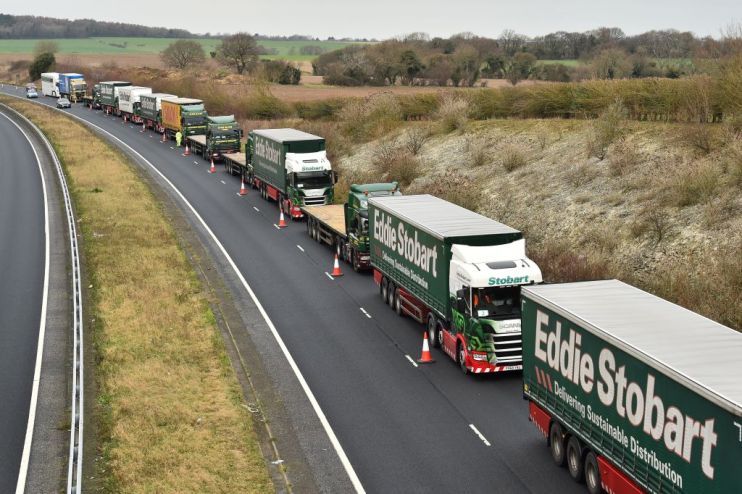Brexit: Government warns of 7,000-long lorry queues in Kent

Ministers have warned of 7,000-long lorry queues in Kent after the Brexit transition period ends.
In a letter to the freight industry cabinet minister Michael Gove warned exporters would face long queues and a two-day delay to trade.
Imports will also be disrupted in January, while delays could be worsened if a winter spike in Covid-19 cases leads to absences of port and border staff.
In the letter, seen by BBC News, Gove outlined the government’s “reasonable worst-case scenario for when the UK leaves the EU’s single market and customs union rules on 1 January.
He will outline the scenario work, which the government said was not a forecast, in the Commons later today.
According to the document, exports could face “maximum queues of 7,000 port bound trucks in Kent and associated maximum delays of up to two days”.
“Both imports and exports could be disrupted to a similar extent,” it says.
The government’s worst-case scenario outlines up to 70 per cent of freight trucks travelling to the EU being unprepared for new border controls.
This includes up to 50 per cent on the busiest routes between Dover and Calais and in the Eurotunnel.
The disruption is expected to build in January and could last three months or longer if France carries out stringent checks on hauliers at Dover and the Channel Tunnel.
Gove urged traders to make preparations now for new border checks to help mitigate the disruption, adding that this needed to happen whether or not a trade deal is secured with the EU.
But the freight industry has complained that the government is not prepared to deal with border changes after Brexit and described a Whitehall meeting last week as a “washout”.
“Although I don’t think we’re quite back at square one, we’re certainly not much further ahead,” said Richard Burnett, chief executive of the Road Haulage Association.